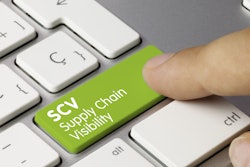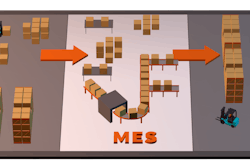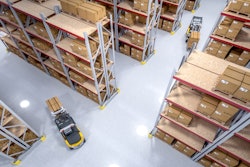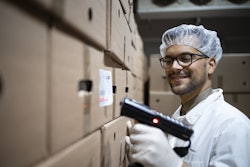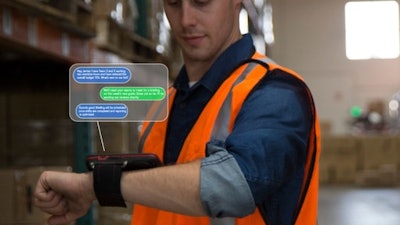
It’s hard to believe that just a few short years ago, no one had heard of Bitcoin and blockchain. But, crypto has slowly been creeping closer and closer to mainstream legitimacy. Even meme coins like Dogecoin get a shout-out.
But, unlike Dogecoin, blockchain technology is no joke; it’s one of the most efficient, secure and transparent ways to log transactions, share information and streamline processes. With blockchain technology, companies can take their logistics to the moon.
What is blockchain technology?
Essentially, blockchain is a decentralized digital transaction ledger. It was created to act as the public ledger for Bitcoin. Here’s a simplified version of the process:
● A transaction is initiated and the data is encoded into a “block.”
● The block of data is broadcast to the network.
● The transaction is independently verified by the network.
● This block of data is connected to the one before it through a unique identifier, creating a chain.
This technology is unique in a number of ways, but the primary difference between blockchain technology and traditional databases is how the data is controlled. Unlike prior ledgers, blockchain is decentralized with each participant possessing a secured copy of the data. With a traditional database, information could be accessed by several users, but the information was stored in one central location.
Some other key features include:
● Secure. Every transaction is recorded onto a block that is individually encrypted.
● Time-stamped. Each transaction is time-stamped to prove authenticity and avoid duplication.
● Immutable. Because each transaction is linked to the prior block through a unique signature and the information is verified through a network of users with their own copy of the ledger, the data can’t be altered or reversed.
● Transparent. The record of transactions is available for anyone to use, providing clear transparency.
● Private. While transactions can be viewed by anyone, the identity of all participants on the network is pseudonymous, if not anonymous.
● Programmable. You can create and run applications on a blockchain, like smart contracts, for example.
How blockchain technology can benefit logistics
The term blockchain is almost exclusively associated with cryptocurrencies, but its programmability allows it to be used in a variety of contexts, including logistics. Here are a few ways that blockchain technology can benefit logistics:
1. Efficiency
Through blockchain, warehouses, manufacturers, suppliers, distribution centers and retailers can create a shared permanent record of every transaction that takes place between them. Having an immutable reliable record like that available to all participants in the supply chain can eliminate the need for paperwork and make the entire process much more efficient. Instead of digging around for forms that need to be filled out or chasing down signatures, all users need to do is locate the necessary information on the blockchain through an app or other interface.
Blockchain is also improving efficiency by automating processes through “smart contracts.” A smart contract is basically a program on the blockchain that gets triggered when preset conditions are met. For example, a smart contract could dictate that once a shipment arrives at a manufacturing facility, payment for the items is released to the supplier. This eliminates a lot of extra steps that would normally need to be completed in traditional transactions.
2. Accuracy
Blockchain technology can also help improve accuracy in the supply chain. With data shared in real time between multiple parties, everyone in the network has access to the same up-to-date information –– no more emailing your supplier to find out where your product is. Now, you can look on the blockchain and find the information yourself. The data can be trusted, because every block of data is encrypted and can’t be tampered.
3. Responsiveness
Access to accurate real-time data provides another benefit –– the ability to respond quickly when demand changes. Traditionally, inventory management has been based on either a reactive model (where supplies were only ordered after being depleted) or a predictive model (where forecasts were used to predict when inventory would need to be replenished.) With the use of blockchain technology, producers can view inventory in real-time, create more accurate forecasts and respond more quickly when the need arises.
4. Transparency
The unchangeable and decentralized nature of blockchain technology can also help to make transactions along the supply chain more transparent. Let’s say, for example, that the fish headed to your local grocery store needs to be kept at 30-32°F, but the temperature in the truck that transported it from the fishery only registered 40°F.
Traditionally, other people along the supply chain would only find out if the driver noted the temperature accurately and passed the information on to others. With blockchain technology, the temperature in the truck could be automatically registered and the information couldn’t be tampered with to cover mistakes.
5. Traceability
This sort of transparency also lends itself to greater traceability. Using blockchain technology, everyone along the supply chain, including the consumer, can see where the product and all of its components came from. For example, if you’re in the distribution center where the fish is being stored, you can use information on the blockchain to locate and remove the fish that fell under 40°F while in transit in Thailand.
6. Speed
With all the benefits that blockchain technology can provide, the end result is a system that’s more streamlined, fast and nimble. Thanks to accurate, real-time information, the elimination of paperwork and automated processes through smart contracts, the supply chain can run much faster and more efficiently than it ever did in the past.
Blockchain: The future of logistics
The promise of blockchain can’t be denied; it’s an invaluable technology that provides information sharing that’s more secure, transparent and accurate.
While the use of blockchain technology in logistics isn’t widely accepted yet, its day is coming. With powerhouses already improving their supply chains through blockchain, innovative companies all around the world will soon follow.




